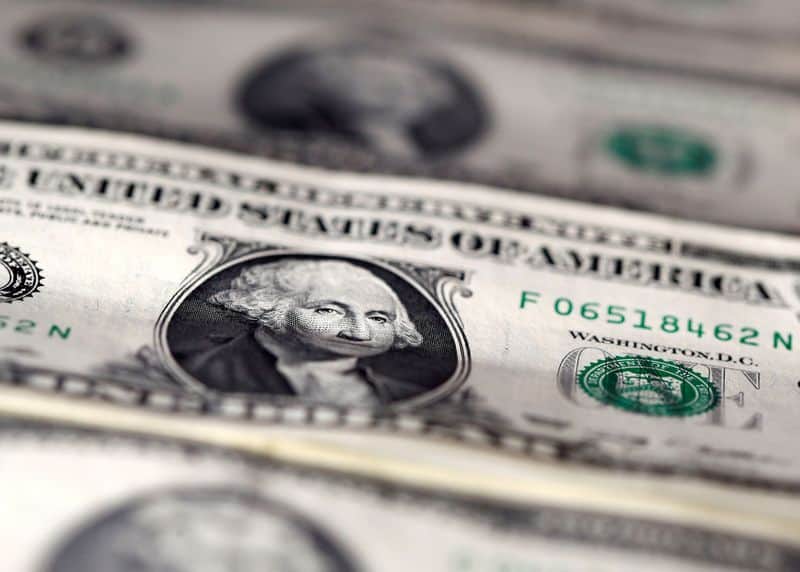The dollar hovered near a two-month peak against a basket of currencies on Monday, as doubts about recovery persisted ahead of a barrage of economic data and political developments in the United States.
While a rebound in U.S. stocks on Friday has helped to curb the ascent of the dollar, deemed as a safe-haven, signs of slowdown in the nascent recovery from the pandemic and political uncertainties have kept investors on guard.
The dollar index stood little changed at 94.530. It hit a two-month high of 94.745 last week and posted its biggest weekly rise since early April.
The euro changed hands at $1.1635, having dropped to $1.16125 on Friday, its lowest in two months.
The British pound stood at $1.2767, slightly above Wednesday’s two-month low of $1.2676.
“The dollar’s rise reflects unwinding of (dollar short) positions. There were two main drivers, rise in real U.S. yields and risk-off trades,” said Tatsuya Chiba, manager of forex trading at Mitsubishi UFJ Trust Bank.
The yield on U.S. inflation-linked bonds, known as real yields, have risen almost 20 basis points after touching a record low earlier this month.
On the whole, higher yields, real or nominal, tend to support a currency. Traders have noted there has been a particularly strong correlation between the U.S. real yield and the dollar over the last few months.
Data on U.S. currency futures positions released on Friday also pointed to more upside potential in the dollar’s recovery, with speculators holding a big net short position in the greenback.
U.S. Commodity Futures Trading Commission data showed speculators held a net short position of $33.989 billion, up from $31.524 billion the week before and near the highest level in almost ten years.
The flip side of that was a still very large net long positions in the euro, which showed a slight increase last week to $27.922 billion.
“We need to be wary of a weaker euro due to further unwinding of euro long positions. We have no shortage of concerns in Europe including rise of coronavirus infections in France and so on, attempts by European Central Bank policymakers to talk down the euro and Brexit,” Makoto Noji, chief currency strategist at SMBC Nikko Securities, said in report.
Against the yen, the dollar was more subdued at 105.46 yen.
Investors now look to the first U.S. Presidential debate on Tuesday as the election in early November has started to loom large.
“Few people will be trying to bet on the election outcome. At least they will wait until tomorrow’s TV debate,” said Kyosuke Suzuki, director of forex at Societe Generale.
Ahead of the debate, the New York Times reported on Sunday President Donald Trump paid extremely little in income taxes in recent years as heavy losses from his business enterprises offset hundreds of millions of dollars in income.
Few investors now expect the U.S. Congress to pass any stimulus package, seen as vital to support the pandemic-stricken economy, before the election.
But there are growing worries the economic recovery is slowing as many of the stimulus programs have expired, curbing consumer spending.
The week provides markets with more U.S. data to gauge the health of the world’s biggest economy, including consumer confidence on Tuesday, a manufacturing survey and consumer data on Thursday and jobs data on Friday.
Elsewhere, the Turkish lira briefly dropped 1.6% to a record low of 7.8000 per dollar.
The lira had enjoyed a rare bounce in the wake of an interest rate hike late last week, but gains faded quickly on investor scepticism about how this will filter through into financial market rates.

